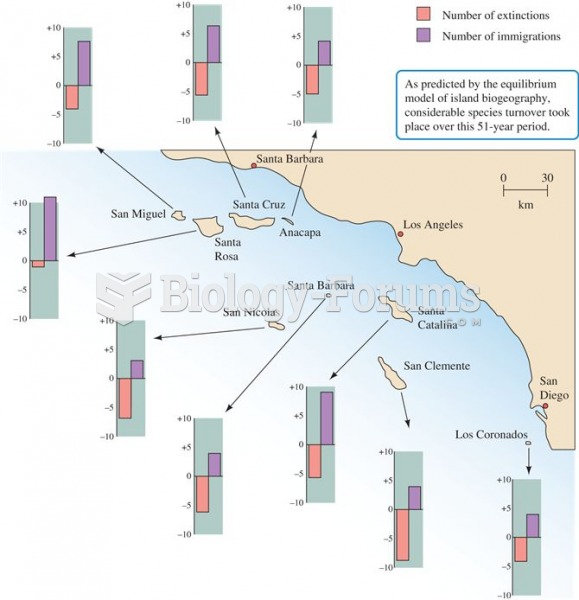|
|
|
Amoebae are the simplest type of protozoans, and are characterized by a feeding and dividing trophozoite stage that moves by temporary extensions called pseudopodia or false feet.
Alcohol acts as a diuretic. Eight ounces of water is needed to metabolize just 1 ounce of alcohol.
The horizontal fraction bar was introduced by the Arabs.
A recent study has found that following a diet rich in berries may slow down the aging process of the brain. This diet apparently helps to keep dopamine levels much higher than are seen in normal individuals who do not eat berries as a regular part of their diet as they enter their later years.
Sildenafil (Viagra®) has two actions that may be of consequence in patients with heart disease. It can lower the blood pressure, and it can interact with nitrates. It should never be used in patients who are taking nitrates.
 Extinction and immigration of bird species on the California Channel Islands between 1917 and 1968 (
Extinction and immigration of bird species on the California Channel Islands between 1917 and 1968 (
 A family of African Americans arrive in Chicago, migrants from the American South, in an exodus that
A family of African Americans arrive in Chicago, migrants from the American South, in an exodus that





